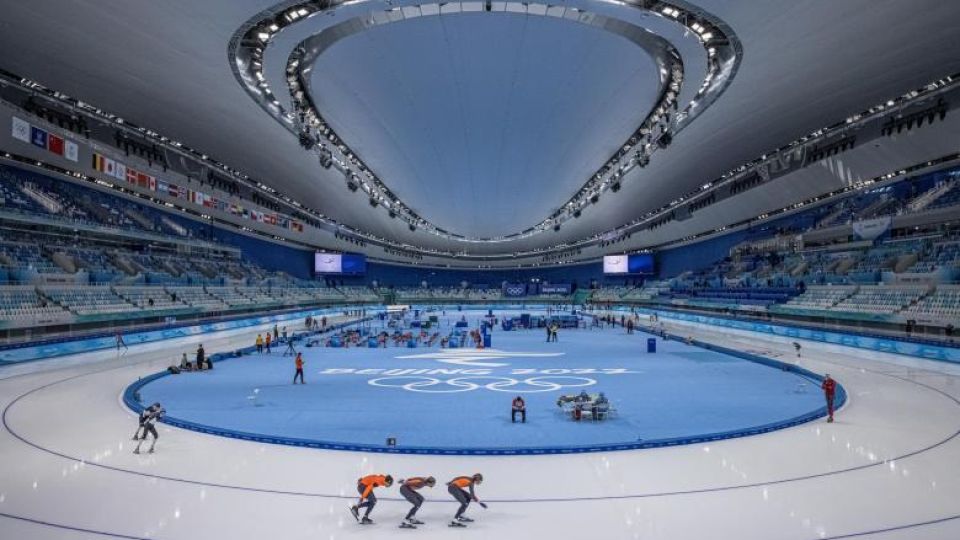February 8, 2022
BEIJING – When Beijing hosted the Summer Olympics in 2008, pride and excitement filled the air. Fourteen years on, as Beijing hosts the Winter Games this month, the mood is different. The Straits Times China bureau reports.
Beijing first to host both Summer and Winter Games
The year 2008 was when Olympic fever first hit China, and it remains etched in the memory of many people in Beijing.
Ms Michelle Xiong remembers the excitement walking down the Sanlitun shopping belt in Beijing, 30 minutes before the opening ceremony started on Aug 8.
“All the bars were already packed, you couldn’t get a seat. Everyone was there to watch the Olympic broadcast,” says the 39-year-old events manager.
Walking a fine line to ensure Covid-19 does not eclipse event

Since the Beijing Olympic bubble went into effect on Jan 4, there have been 135 Covid-19 cases within it. PHOTO: EPA-EFE
With China still maintaining a “zero-Covid” policy as it hosts the Olympic Games, Beijing has been making a great effort to ensure that the pandemic does not overshadow the sporting event nearly seven years in the making.
Within the Olympic bubble it created for the Games, groups are further segregated from one another, on top of being kept away from the general public, in a move intended to be a test balloon of sorts for treating the virus as endemic.
But the new hyper-infectious Omicron variant has thrown a spanner in the works, with over a hundred Covid-19 cases reported within the Olympic bubble even before the opening ceremony on Friday.
China’s claim of ‘clean and green’ Games under scrutiny

The creation and use of fake snow can cause irreparable damage to local flora and fauna. PHOTO: EPA-EFE
Beijing’s claim that it will hold a “clean and green” Olympics is coming under scrutiny amid fears of the return of severe smog in the Chinese capital and concerns over the use of fake snow that requires large amounts of water to produce.
Experts have pointed out that the creation and use of fake snow – from an estimated 49 million gallons of water – can cause irreparable damage to local flora and fauna, and lead to soil erosion that may result in flooding and small landslides.
Information on the final amount of water used to make snow for the Games will be released after the event, according to a pre-Games sustainability report by the organisers on Jan 13. The Winter Games, which opened on Friday, will run until Feb 20.
China’s foreign-born athletes fill void but raise questions

Anna Fei, seen here taking a wefie with her teammates, is one of the foreign-born players in China’s women ice hockey team. PHOTO: REUTERS
In 2019, rising teenage ski star Eileen Gu, who spent most of her growing up years in the West Coast of the United States, sent a ripple of shock through the snow sports fraternity when she announced that she would compete under the Chinese flag.
Many had expected the freestyle skier, then 15, to join Team USA with its well-established winter sports programme.
Ms Gu, now 18, is among at least a dozen foreign-born athletes, mostly of Chinese descent, who have chosen Team China since British-born equestrian Alex Hua Tien decided to do so in 2006.
Born overseas but flying the Chinese flag

(Clockwise from top left) Eileen Gu, Beverly Zhu, Ty Schultz and Ashley Lin. PHOTOS: AFP, INSTAGRAM/BEVERLY ZHU, ZHENG ENLAI/WEIBO, ASHLEY S LIN/INSTAGRAM
There are at least a dozen foreign-born athletes, mostly of Chinese descent, who have chosen to represent Team China in the Beijing Winter Games.

